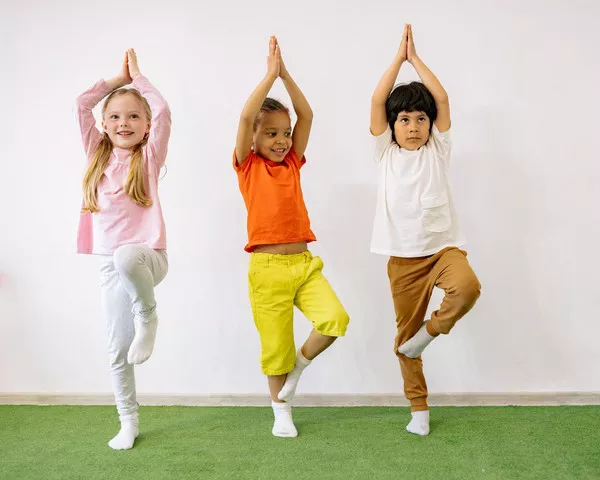Self-esteem and body image are two intertwined facets of our self-concept that profoundly influence our mental, emotional, and physical well-being. They are critical aspects of our identity that shape how we perceive ourselves and interact with the world around us.
Understanding Self-Esteem
Self-esteem, often defined as the overall subjective evaluation of one’s worth and capabilities, is at the core of a person’s sense of self. It encompasses how we perceive our abilities, talents, and how we believe others perceive us. A healthy level of self-esteem acts as a foundation for positive mental health, self-empowerment, and personal growth.
Positive self-esteem is closely associated with increased resilience in the face of life’s challenges. People with high self-esteem tend to approach difficulties with confidence and a belief in their ability to overcome obstacles. On the other hand, those with low self-esteem may struggle to cope with adversity, leading to feelings of helplessness and hopelessness.
Furthermore, self-esteem influences the way we interact with others. Individuals with a healthy self-esteem are more likely to engage in assertive and constructive communication, fostering better relationships with family, friends, and colleagues. In contrast, those with low self-esteem may struggle with interpersonal connections, often experiencing social anxiety and difficulty forming meaningful bonds.
The Connection Between Body Image and Self-Esteem
Body image, another crucial component of self-concept, refers to how individuals perceive and feel about their physical appearance. This perception can have a profound impact on self-esteem. Society’s emphasis on beauty standards and the prevalence of idealized body images in the media contribute to unrealistic expectations and negative self-perceptions.
When someone has a negative body image, it can erode their self-esteem, leading to a downward spiral of self-doubt and self-criticism. They may constantly compare themselves to others, feeling inadequate and unworthy. As a result, their self-esteem takes a hit, affecting various aspects of their life.
Conversely, a positive body image can bolster self-esteem. Embracing one’s body and appreciating its uniqueness can lead to increased self-confidence and a healthier self-esteem. This, in turn, enables individuals to navigate life’s challenges more effectively and build more fulfilling relationships.
The Influence of Self-Esteem and Body Image on Mental Health
Mental health is deeply intertwined with self-esteem and body image. Individuals with low self-esteem are more susceptible to mental health issues such as depression and anxiety. The negative self-talk and self-criticism that often accompany low self-esteem can lead to a pervasive sense of hopelessness and despair.
Body image issues, particularly body dysmorphic disorder (BDD), can also have a severe impact on mental health. People with BDD obsessively focus on perceived flaws or defects in their appearance, often leading to crippling anxiety and depression. This preoccupation with physical appearance can consume their thoughts, making it difficult to engage in daily activities or maintain healthy relationships.
Conversely, individuals with a healthy self-esteem and positive body image are more resilient in the face of mental health challenges. They tend to have a more positive outlook on life and are better equipped to cope with stress and adversity. Cultivating self-esteem and a positive body image can act as protective factors against mental health disorders, contributing to overall psychological well-being.
The Ripple Effect on Physical Health
Self-esteem and body image also have a significant impact on physical health. Research has shown that individuals with low self-esteem are more prone to engage in unhealthy behaviors such as smoking, excessive drinking, and overeating. These behaviors can lead to a range of health problems, including obesity, heart disease, and substance abuse disorders.
Furthermore, a negative body image can drive individuals to engage in extreme dieting and exercise regimens, often leading to eating disorders such as anorexia nervosa and bulimia nervosa. These disorders not only have severe physical health consequences but also perpetuate a cycle of self-destructive behaviors driven by low self-esteem and a distorted body image.
On the contrary, individuals with a healthy self-esteem and positive body image are more likely to prioritize their physical health through balanced nutrition and regular exercise. They view self-care as an act of self-respect, leading to a reduced risk of chronic health conditions and a longer, healthier life.
Enhancing Self-Esteem and Body Image
Given the profound importance of self-esteem and body image, it is crucial to nurture and enhance these aspects of our self-concept. Here are some strategies to promote a healthy self-esteem and a positive body image:
Practice Self-Compassion: Treat yourself with the same kindness and understanding that you would offer to a friend facing similar challenges. Self-compassion can help counter negative self-talk and self-criticism.
Challenge Negative Thoughts: Identify and challenge negative thoughts about yourself and your body. Replace them with more realistic and positive affirmations.
Seek Professional Help: If self-esteem or body image issues are significantly impacting your life, consider seeking support from a mental health professional. Therapy can provide tools and strategies to address these concerns.
Limit Media Exposure: Be mindful of the media you consume. Avoid content that perpetuates unrealistic beauty standards and opt for media that promotes diversity and body positivity.
Engage in Self-Care: Prioritize self-care activities that make you feel good about yourself, whether it’s exercise, meditation, or creative hobbies.
Build a Supportive Network: Surround yourself with friends and loved ones who uplift and support you. Positive relationships can boost self-esteem and body image.
Conclusion
Self-esteem and body image are essential aspects of our self-concept that influence nearly every facet of our lives, from mental and emotional well-being to physical health and interpersonal relationships. Understanding the intricate connection between self-esteem and body image is the first step toward cultivating a healthier self-perception.
By fostering a positive self-esteem and embracing a positive body image, individuals can unlock their full potential, enhance their mental and emotional resilience, and lead healthier, more fulfilling lives. It is imperative that we prioritize self-esteem and body image as essential components of our overall well-being and take proactive steps to nurture and protect them.
Related topics:



























